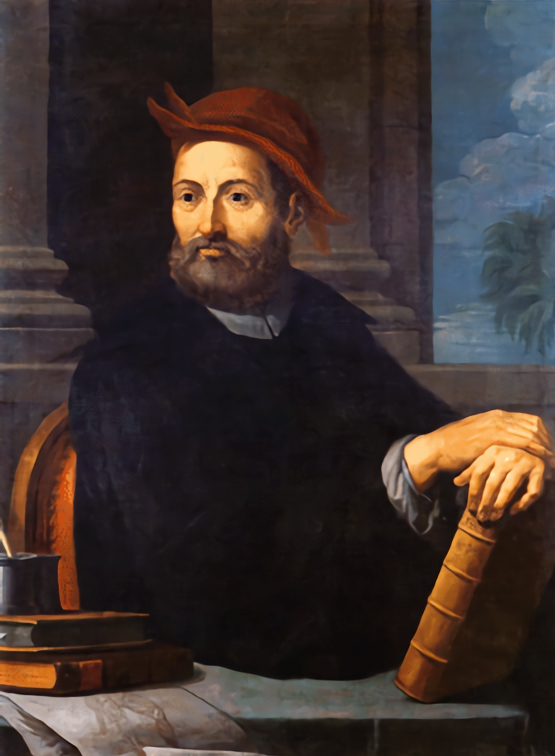For Andrea Cesalpino (1524-1603), the soul resides in the heart.
All very romantic, but in this edited book about his work, the topic of the heart comes in a chapter on Cesalpino’s investigation into demons. We are told by Craig Martin (one of the editors of the book), that Cesalpino believed “demonic possessions and hallucinations are the result of natural substances that have been set in motion by demons. Witches find the substances demons use and apply them in black magic.” For Cesalpino, death ensues when a polluted spirit harms the heart. “The dirty nature of the spirit is evident in the sulfuric stench and putrefaction that is emitted during exorcisms.” Whew!
Obviously, this book is not for the faint of heart (pun intended). Even though Cesalpino recognized the existence of polluted spirits, he actually identified the unpolluted soul with the divine, as Plato, Hippocrates and Aristotle also believed (more on this below).
The entire premise of this book is Aristotelianism in the sixteenth century. The first chapter, by Marco Sgarbi (Ca’ Foscari University of Venice), sets the stage. “Cesalpino never wrote a commentary on Aristotle’s texts. His works mainly tackle academic questions or disputations on Aristotelian topics. They articulate not a slavish or pedantic devotion to Aristotle’s works, but rather fresh and original ideas capable of transforming Aristotelian tradition.” Cesalpino’s studies ranged widely, with various devoted to philosophy, botany, mineralogy and medicine. There are extensive details on each of these in this excellent book. I am surprised he did not make a foray into biology and the origin of humans, but his interests were certainly many.
To explain about how Cesalpino viewed the soul and the divine, and related it to the influence on his thoughts from Aristotle, I will quote from a passage he wrote. Chapter author Andreas Blank explains the analogy Cesalpino uses: “to animate the universe, the divine intelligence need not be present to all parts of the universe. It suffices that the divine intelligence be present to the heavens.” This is how Cesalpino put it:
It is as if we hold that the soul had many parts because it confers the power of
sensation to many parts while, by itself, it is one and resides indivisibly in the
heart, as Aristotle maintained. But that intelligences are many in this sense
is not repugnant to the unity and simplicity of intelligence that we advocate.
For as the same soul is called vision in the eye but hearing in the ear, so can
The same intelligence, in so far as it moves the moon, be ascribed to the moon,
In so far as it moves Saturn, be ascribed to Saturn, and so on.
For a professional astronomy journal, I recently reviewed a brilliant book by Dr. Sgarbi (see link below), which focuses on the use of regresses. Cesalpino, he writes in this book, “took an original stance on a specific elaboration of the regresses theory.” By employing all three operations “that encompass what Renaissance Aristotelians characterized as the intermediate stage of the regresses,” he laid the framework “to develop a methodology which makes it possible to transform botany into a true science.” Sgarbi also tells us that Cesalpino’s most famous student was Galileo, although we don’t know much about their interaction from 1582 to 1584.
This book positions, for the first time, the work of Cesalpino in the context of the century in which he lived. The views of other scholars about his work is here, and how his studies advanced science – especially in giving botany a scientific footing for the first time – is of great importance to any historian of science.
There is a typo on pg, 35: “an assiduous an”
For a detailed explanation of the use of regresses from 1500-1700, see my book review in the Journal of Astronomical History & Heritage, vol. 27, no. 1, pg 230-232: The Age of Epistemology: Aristotelian Logic in Early Modern Philosophy 1500–1700, by Marco Sgarbi.
The editors: both are at Ca’ Foscari University of Venice, Italy.
Fabrizio Baldassarri is Marie Sklodowska Curie Fellow.
Craig Martin is Associate Professor of History of Science and Technology.
Andrea Cesalpino and Renaissance Aristotelianism: Natural Philosophy in the Sixteenth Century is by Bloomsbury. It lists for $103.50.
Image credit: Cesalpino as depicted in 1550. Courtesy of Wikimedia Commons.
